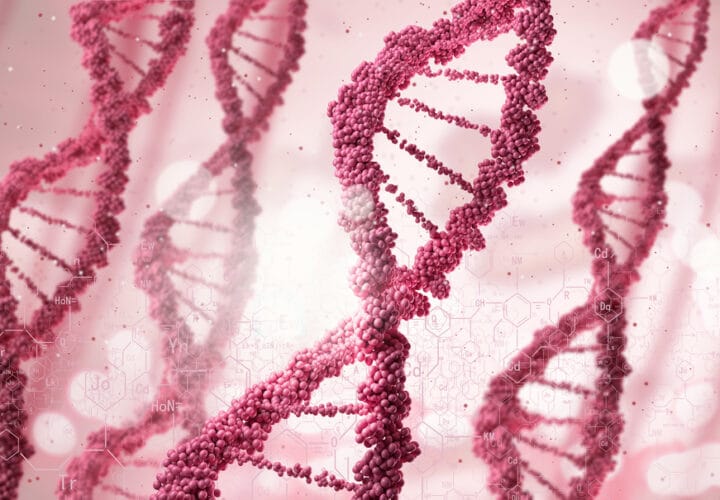Can a gene that naturally suppresses Alzheimer’s in brain cells pave the way to curing it?
In 2012, excitement rippled through the scientific community with the discovery of an enzyme that appeared to be, just maybe, a powerful new tool for combating Alzheimer’s. At the Mayo Clinic in Florida researchers identified a gene, BACE2, which appeared to destroy beta-amyloid — a protein, then understood to be toxic, which is found in clusters in the brains of people living with Alzheimer’s.
Since then, the role of beta-amyloid has remained central to the search for an Alzheimer’s cure, but its intent has been called into question. Despite billions going into beta-amyloid as a drug target, little progress has been clocked. Now, some scientists theorize it isn’t a cause of Alzheimer’s, so much as a misunderstood line of defense against the disease, rising up to protect the brain from the real culprits. This theory — and whether that ‘real culprit’ is a virus, or something else — is still being studied.
As our understanding of beta-amyloid remains in flux, the role of BACE2 grows only more interesting. But its role in Alzheimer’s too remains a mystery. In part, this is because the experimental drugs that block BACE1 in order to control beta-amyloid also inhibit the activity of BACE2. According to Alzforum in 2018, “BACE2 has always taken a back seat to BACE1 in the Alzheimer’s field.” Thus, the function of this less-studied brain enzyme, has long been “entirely unknown.”
In a study published last week in Nature group journal Molecular Psychiatry, researchers at Queen Mary University of London found proof of BACE2’s existence and observed its ability to naturally suppress the signs of Alzheimer’s Disease in human brain cells.
The team compared BACE2’s function to the way that anti-oncogenes, or tumor suppressor genes, affect cancer. In the case of these tumor suppressors, according to Cancer.org, they are normal genes that can slow the division of cells, help to repair DNA mistakes, and tell cells when to die — a process known as apoptosis. When anti-oncogenes malfunction, cells can grow out of control, which leads to cancer.
Just like anti-oncogenes, increased activity of the BACE2 gene contributes to the slowing down of Alzheimer’s in human brain tissue. The research team believes it has the potential to serve as a biomarker to determine Alzheimer’s risk, and even as a pathway to an Alzheimer’s therapy.
The encoded protein of BACE2 is known to cleave the precursor to amyloid proteins into beta-amyloid peptide — the existence of which is a critical step in the etiology of both Alzheimer’s disease and Down syndrome.
The link between the two is unknown but according to the researchers in London, people living with Down Syndrome have as much as a 70 percent higher likelihood of developing Alzheimer’s during their lifetime. For this reason, the researchers worked, with the support of the Down’s Syndrome Association (UK), with people living with Down in their recent study to develop faster Alzheimer’s drug-testing mechanisms. It was during this study that they observed the BACE2 in action.
In a statement, the researchers thanked participants who “kindly accepted to participate in this study, the results of which could be beneficial for people with and without DS in preventing Alzheimer’s.”

I continue to be absolutely fascinated by all the new genetic research that is developing around AD and how it is unravelling the mystery of the disease. Wondering if the existence of this gene can help us with prevention?